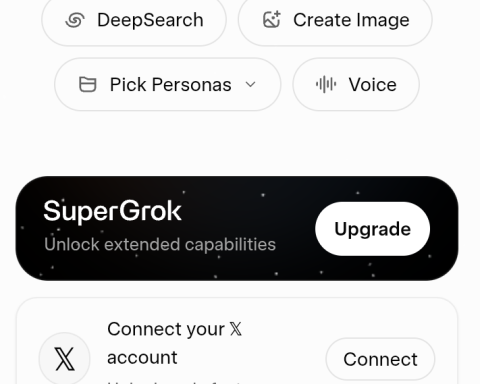Nigerians Held Hostage by Inflation and Price Gouging
In Nigeria today, prices of essential goods and services are soaring at an alarming rate, making life unbearable for the average citizen. From basic food items to fuel and rent, price gouging has become the norm, as businesses and individuals set their own prices with little to no regulation. While inflation is a global issue, opportunistic practices exacerbate the situation in Nigeria. This raises the question: How long can the masses endure?
Supermarkets Join the Price Hike Frenzy
It was a quiet evening at an Lagos grocery outlet when a father of four noticed something unusual. An attendant was discreetly removing price tags from the shelves, leading her to report the act to the store’s supervisor.
Join our WhatsApp Channel“Thanks madam, he is doing his job,” the supervisor replied. “Our suppliers just informed us about a hike in the prices of some items, and our staff is updating the price tags.”
The mother was stunned when she realised that the price of a carton of milk had jumped nearly 100% in just two weeks. “Why? I bought this milk for N2,800 two weeks ago, why is it now N4,200?” she exclaimed.
This scenario is not isolated. Across Nigeria, businesses are increasing prices seemingly at will, often without proper justification. Shoppers are feeling the pinch, with many questioning how they can survive in such conditions, especially with the government’s promises of a minimum wage increase yet to materialise.
The Open Market: Where Prices Know No Boundaries
In the open market, things are worse. Sellers are setting prices according to their whims. Mr. Idris Adebayo, a cement wholesaler in Lagos, is notorious for this practice. “If you don’t want to buy, go to another seller,” he tells disgruntled customers who complain about her prices, which are often N1000 higher than the recommended retail price.
READ ALSO: Nigerian Equity Market Defies Inflation, Gains 0.47%
Samad Rabiu, chairman of BUA Cement, once expressed his frustration, stating that despite efforts by his company to keep prices fair at N3,500 per bag, dealers inflated prices to as high as N7,000. “These dealers are exploiting the masses, and it needs to stop,” Rabiu said earlier this year.
Food Vendors: Small Portions, Big Prices
For many Nigerians, food is now a luxury. Food vendors too, have joined the bandwagon, offering smaller portions at inflated prices. Kunle Iremide, a mechanic in Oshodi, Lagos State, expressed his frustration: “The portion of food I get now from Mama Ebun isn’t even enough for my seven-year-old daughter, yet she has tripled the price since April.”
When Iremide confronted the vendor about the small portions and rising prices, her response was dismissive: “Ask your wife who goes to the market. Prices are high now.”
Iremide believes the vendors could easily increase portions or reduce prices, but greed has taken over. “Everybody wants to live like Abuja politicians, but we all cannot,” he lamented.
Fuel Prices: An Unending Nightmare
The irregular pricing of petrol is another thorn in the side of Nigerians. As fuel stations adjust prices whenever they like, consumers are at their mercy. Julius Onuka, a telecom engineer in Lagos, shared a shocking encounter: “A fuel attendant charged me N24,000 for 20 liters, even though the meter displayed N1,050. The attendant insisted that their rate was N1,200 per litre.”
In a country where fuel scarcity is frequent, petrol stations often take advantage, further adding to the burden on the public. “We can’t continue this way,” Onuka said, echoing the sentiments of millions.
Rent: Landlords Cashing In on Inflation
As if the rising cost of food and fuel isn’t enough, landlords across Nigeria have hiked rent prices, often doubling or even tripling what tenants used to pay. In Lagos, for example, a two-bedroom flat that used to cost N1 million now goes for N2.2 million.
Ambrose Afigba, a resident of Ajao Estate, was forced to relocate to his hometown when the rent on his flat skyrocketed. “We were ejected when a new owner bought the building. After renovations, rent increased from N1 million to N2.2 million. Nobody is asking questions,” Afigba complained.
Many tenants believe real estate agents are to blame, but landlords argue that they are only reflecting the current market value. Olajide Kolade, a landlord in Isolo, Lagos, defended the rent hikes: “Property is an investment, and the increase in rent is a good return. If you can, build your own house and stop envying landlords.”
A Call for Government Intervention
Amid these overwhelming challenges, some Nigerians are calling for government intervention. Onyewuchi Akagbule, a senior lecturer, believes that the government should step in to regulate prices. “Even in capitalist economies like the U.S., the government controls prices in certain sectors to protect the vulnerable. Nigeria should do the same.”
However, the Federal Competition and Consumer Protection Commission (FCCPC) has distanced itself from any plans to regulate prices. “We assert that prices in a competitive marketplace are determined solely by supply and demand. Price control is not within our mandate,” explained Ondaje Ijagwu, FCCPC’s Director of Special Duties.
Nigerians, however, feel abandoned. “Government denies increasing fuel prices, FCCPC refuses to control prices, and we are left at the mercy of the market. Why do we even have a government?” exclaimed Ayomide Lamidi, an economist.
Is There a Way Out?
As prices continue to rise unchecked, many Nigerians are left wondering how much longer they can survive in this system. The government remains adamant that its economic reforms will yield long-term benefits, but the daily struggles of ordinary citizens paint a different picture. Until there is meaningful intervention, price gouging will continue, leaving the masses to suffer.
In the words of Bala Mohammed, Governor of Bauchi State: “With inflation eating away at the purchasing power of the people, we are at the risk of being lynched by the masses.”
Emmanuel Ochayi is a journalist. He is a graduate of the University of Lagos, School of first choice and the nations pride. Emmanuel is keen on exploring writing angles in different areas, including Business, climate change, politics, Education, and others.
















